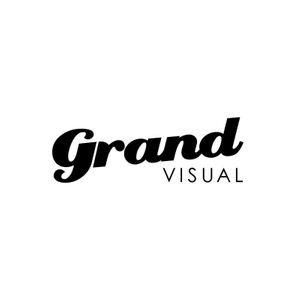
Mutual Enhancers with Nathelie Meng

When I met Nathelie she was in the midst of solving one of the many problems that project directors face on the daily. Despite coming from a media background, she never imagined she’d end up working in advertising. After transitioning from content creation to production, she spent a lot of time trying to find the company that felt like home to her. Years later, when she joined Grand Visual, it felt like that homecoming she’d longed for: “I realised that these are my people, and this is the home for me.” It wasn’t just another company for Nathelie. Six years in, she still feels exactly the same way.
The nature of the job means spinning lots of plates at the same time, which of course has its difficulties. Despite this, Nathelie perceives her role as the essential lubricant ensuring the seamless function of the ‘machine’ comprising the commercial, development and creative teams. Managing and maintaining team morale is paramount to the success of the project, in her view, but can also be one of the most challenging things to temper.
In this interview, Nathelie tells us how technology and great design are mutual enhancers, the future of out of home, and how new projects, are really just like cooking.
LBB> Can you tell me what a standard day in your work life looks like?
Nathelie> At the moment, my day consists of a lot of meetings. What I tend to do is monitor everything going in and out of the production. So, I have a ridiculous amount of emails going through my inbox. I don't need to know every detail of each project, but I must have a rough idea of how each project is going. My day is also filled with costings for different types of projects, and I need to answer any questions from my team and flag anything that I think of that needs to be flagged. Additionally, I look at upcoming projects and determine how to allocate the producers who are working with our operations manager. The bottom line is I need to make sure that all the projects are profitable and that everything's running as smoothly as possible. Ideally, I would have eight eyes, 17 arms and three heads to help me with this job.
LBB> Can you share a specific challenge you’ve faced whilst managing a large-scale, international project and how you navigated it?
Nathelie> Tin Cup is a whiskey brand. The cap on top of all the bottles is a shot glass. For one project we did with them, we gold-plated the included shot glasses and hid them in three states in the US off the beaten path. Obviously, it was a completely new OOH activation for us. We had to organise all of the legal approvals. Also, we had to find suitable places in three states to hide the cups and travel there to get permission from the landlords. We had to deal with all the media around this activation from the larger scale of the client and work closely with the client’s social agency on the digital elements of this. In the meantime, we needed someone to create hints we'd drop over social media too well. So that was the ask: organising a huge amount of stakeholders to make something amazing happen. There was a lot of travelling and sending my team to different states to scout for locations and local talents to help us. It was very complicated, really detailed and completely different than any type of project – but it’s only the first time once! But HUGELY rewarding.
LBB> How did you manage all that?
Nathelie> With loads of patience, losing half my hair and getting a new pair of glasses (joking!!). But honestly, we break everything into smaller pieces. Nothing is too big of an ask when you're getting through the first phase of a project, and things are overwhelming. A lot of times, the best thing to do is say, “I don't know.” A lot of people pretend they know something when they don't and panic when things aren’t going right. I truly believe that when you don't know, you should simply admit that you don't know. When you have three people working together, the weight everyone collectively pulls is much more effective than when you don't know, and you're barking orders. Having a great team of people who are willing to give me a hand with anything allows me to step back from tasks where I don't quite know what to do. It’s all worth it for the end result, creating something that makes people stop in their tracks in the real world. Even better when the whole project started with erm...how do we do this?
LBB> Given your expertise in digital media and creative tech, where do you see the most significant technological opportunities for out-of-home (OOH) in the coming years?
Nathelie> Lots of people are going to say AI. I think it’s slightly different. Honestly, I really do think it's programmatic. I do think that in the next few years, advertising is going to be more targeted rather than mass advertising. Because we're wearing Fitbits and taking our smartphones everywhere, all the data is available, so our advertising can be more targeted to an individual person.
LBB> You’ve highlighted your natural sense for great design. How do you balance this innate instinct with the ever-evolving trends and tech in the OOH space?
Nathelie> For me, great design and great technology are like the ingredients in a recipe. They need to enhance each other. So, technology won't be great without great design, and great design might not be as great without technology. But the worst thing you can do is force-fit design and technology together. That will not work. The best thing you can do is ensure the technology and design complement each other and work together in a way that makes sense. People don't really go around saying, "oh, this is really great design," or "oh, look at this impressive technology." What they're thinking is, "that's so clever." That's the feeling you want to get from your audience, and that’s what we aim to deliver at Grand Visual.
LBB> Where do you envision the future of OOH heading in the next five years, given rapid tech advancements and shifts in consumer behaviour?
Nathelie> I do think as much as we've been taken over by our phones and despite how we are glued to our screens, nature and activity in the outdoors will draw people out. With OOH advertising, we're giving people space to do that. I think you're going to see more and more interactivity in campaigns, and that will provide people with some food for thought. It'll give people activities to invite others to join in with. I think that, especially in this age when technology is getting more and more prevalent in our lives, OOH, as a medium, will work even better because it will bring people outside and get them doing things together.
LBB> What's your favourite part of what you do?
Nathelie> I tend to think of the commercial, development and creative teams as one big machine, and I think the producers and the project managers are the oil lubricating that machine. I like getting to put all the cogs in the right place and make sure everything goes smoothly. When I see that the machine is well-oiled and working perfectly, it’s a satisfying feeling for me.
LBB> What’s the most challenging?
Nathelie> People are our most important assets because, without them, nothing would work. Therefore, you need to motivate them, ensure that their morale is good and celebrate their successes when they happen. Making sure that I have a well-functioning team is the most important thing to me and the most challenging as well. You can’t be callous, and you always have to be considerate of other people’s needs and feelings.
LBB> Where do you personally draw inspiration from when approaching new projects?
Nathelie> I’ve mentioned cooking before, but here’s another cooking quote. I truly think that every project is a bit like a recipe for a dish. Oftentimes, you’ll have a specific dish you want to cook in mind. First, you need to figure out what ingredients you’ll need, and then you must find out if there’s already a recipe out there. If there is one, then we can follow that recipe, but if not, then we need to figure out how we go about completing the dish based on our past experience. There’s definitely stress that comes from wondering, “how can this possibly work?” But in the end, you still end up with a beautiful dish. That’s how I find inspiration: by thinking to myself, “okay, let’s approach this one step at a time, peel everything back to see the raw ingredients and see what we can do.”
LBB> Anything else you’d like to add?
Nathelie> In any project, most of the conflicts you'll encounter are a result of budget, design and time. Sometimes, they don't go hand-in-hand, and they end up getting pitted against each other: time versus budget versus design. Sometimes, you want a brilliantly designed ad, but you only have three weeks, or you’ve only got five quid, so that’s not possible. If anyone has solved this puzzle, please let me know because I’ve been in this business for a while now, and I want to know if anyone has a quick and easy solution to it.
The world of creative out-of-home campaigns can be a labyrinth. It’s a swirl of creativity and complexity that requires equal measures of ingenuity and patience. In the kitchen of innovation, Nathelie is a master chef - mixing the ingredients of technology, design and human talent, to cook up extraordinary campaigns. That’s why with her on hand, armed with pragmatism and a keen instinct for great design, there’s no project insurmountable for Grand Visual. And she’s proven that countless times already.













